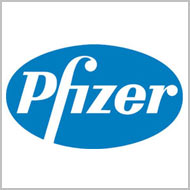
Pfizer Inc. has received European Commission (EC) approval for Trumenba (Meningococcal Group B Vaccine) for the prevention of invasive meningococcal disease caused by Neisseria meningitidis serogroup B (MenB) in individuals 10 years of age and older. Adolescents and young adults are a critical demographic for vaccination against MenB due to inherent environmental and social risk factors such as close-quartered living and sharing behaviors.
“The approval of Trumenba reflects our dedication to advancing novel vaccines that can help protect adolescents and young adults, a population at an increased risk for meningococcal disease caused by MenB,” said Luis Jodar, chief medical and scientific affairs officer, medicines development, scientific and clinical affairs, Pfizer Vaccines. “Though uncommon, MenB disease is unpredictable, can progress rapidly and is associated with a significant risk of death and long-term disability, demonstrating the value of immunization as a preventive measure.”
Early symptoms can be misinterpreted as the flu, but meningococcal disease can lead to death within 24 hours. Despite antibiotic treatment, 10 to 15 percent of people with meningococcal disease will die.3 Of those adolescents who survive, three in five experience significant physical and mental disabilities. Adolescents remain a very important group for vaccination, as up to a quarter may be asymptomatic carriers of Neisseria meningitidis.
“We are steadfast in our commitment to progress and shape the future of vaccines to help address serious health threats worldwide and make the greatest public impact,” said Susan Silbermann, president and general manager, Pfizer Vaccines. “We are also focused on consistent, reliable supply for all the vaccines we manufacture, including a full 36-month shelf life with Trumenba. With the EC approval of Trumenba, Pfizer now has a comprehensive portfolio of vaccines to help prevent five of the most common disease-causing meningococcal serogroups in this region.”
Pfizer continues to invest significantly in manufacturing processes and facilities to ensure a sufficient supply of Trumenba in Europe, where the majority of meningococcal disease cases (60 percent) among adolescents and young adults are caused by serogroup
The EC decision is based on results from a clinical development program in which more than 20,000 adolescents and adults were evaluated, approximately 15,000 of whom received Trumenba. The data demonstrate that Trumenba induces protective serum bactericidal antibody responses to diverse MenB test strains that are representative of disease causing strains, and the vaccine has an established safety profile. In clinical studies, the most common adverse reactions observed were injection site pain, redness and swelling at the vaccination site, headache, fatigue, chills, diarrhea, muscle pain, joint pain and nausea. The posology includes both two- and three-dose schedules, providing flexibility for healthcare professionals to administer the vaccine depending on individuals’ risk of exposure and susceptibility to MenB. The marketing authorization granted by the EC is valid in all European Union (EU) member states, plus Iceland, Liechtenstein and Norway. Additional marketing authorization application reviews for Trumenba are under way in other countries.
Pfizer’s meningococcal vaccines portfolio includes vaccines that help protect against five of the most common disease-causing serogroups — A, B, C, W, and Y (approvals varying by country) — which can threaten the health of people at various points in their lives. Since its first approval in the U.S. in 2014, Trumenba has been administered to an estimated 600,000 adolescents and young adults. The risk of contracting meningococcal disease varies year to year, by age group, and by the country one travels to or lives in.
Pfizer' trumenba, eu approval, prevention of invasive meningococcal disease